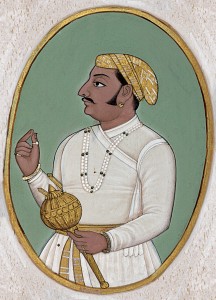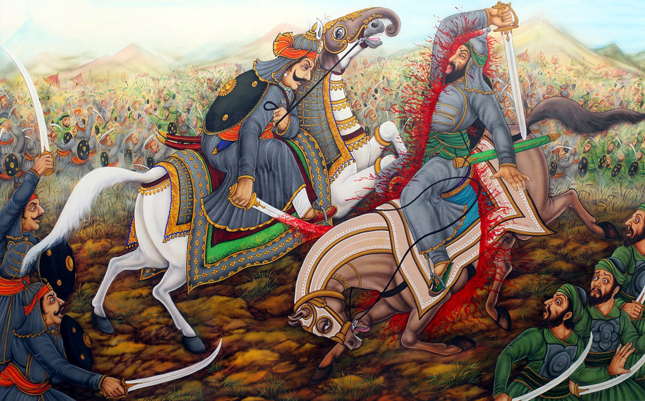Rana Amar Singh I
Ruling Period: 1597 – 1620
Maharana Amar Singh I was the eldest son and successor of Maharana Pratap. He was the 13th Ruler of Mewar dynasty of Sisodiya Rajputs. Maharana Pratap, on his death bed, made his successor swear to him in front of his chiefs to maintain their fight against the Mughals and to re-conquer Chittor. From his childhood to the days of Pratap’s death, Amar had been a constant companion in his valiant father’s toils and troubles. He proved to be a great warrior in the battle of Dewair, wherein, Amar Singh killed the Mughal commander in charge, Sultan Khan. It is believed that he thrust his spear with such force that the weapon struck in the ground after piercing the strong coat of mail and the horse of Sultan Khan. Mewar was victorious and Pratap was able to claim back much of the lost territories of Mewar, but not Chittor. Amar Singh, a dutiful son fought many battles with the Mughals during his lifetime, both against Akbar and Jahangir to fulfil his father’s last wish.
Maharana Amar Singh unfortunately reached a breaking point after the attack lead by Shah Jahan which caused much damage to life and property of Mewar. Temples were destroyed, several villages put on fire and ladies and children were captured and tortured to make Amar Singh surrender. In pure interest of his people and Mewar, he made a diplomatic move. The treaty between Amar Singh and Jahangir stands on a different plain as against any other treaty between a Mughal Ruler and a Rajput Chief of Rajasthan. Whereas other Rajput rulers were required to attend the Imperial Darbar in person, the Rana was exempted from such a duty. The territories around Chittor along with the Chittorgarh Fort were given back to Mewar in 1616 by Jehangir, as a goodwill gesture. The treaty of 1615 A.D. terminated almost a century-old struggle between two legendary ruling houses.
-
niks lopez
-
Team Eternal Mewar
-





